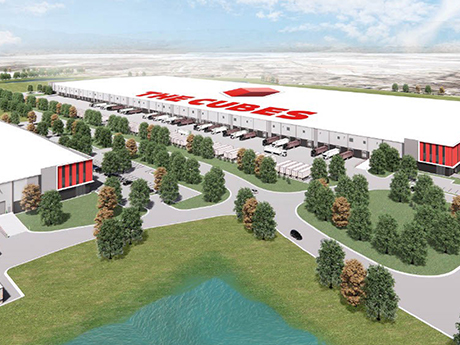Nashville’s industrial market continues to see strong demand going into 2023. In fact, more than 1.7 million square feet of leasing activity was recorded throughout fourth-quarter 2022, bringing the year-to-date transaction volume just shy of an impressive 8.8 million square feet.
Even overall vacancy sat at 3 percent during the final quarter of 2022, and while that was a slight increase compared to the previous quarter, it still was 30 basis points below the national vacancy average. Despite a recessionary environment and uncertainty of what’s next in the commercial real estate sector, Nashville’s industrial market is uniquely positioned for the upcoming year.
As Nashville’s industrial market still experiences growth, there are several macro-economic trends impacting it that are worth keeping an eye on, such as e-commerce and third-party logistics demand. Interest rates have also risen, making it very tricky to value property and cap rates due to the debt markets.
This has triggered limited investment activity from buyers and sellers alike across all property types, including industrial. Industrial developers are also being more cautious as rising interest rates have increased construction costs. Many developers and investors have purchased land or have land under contract, for example, but are waiting for capital markets to further stabilize before beginning construction efforts.
A few exceptions to the broader trend of delaying construction starts are coming out of Nashville though, demonstrating the market’s resiliency. Key speculative construction projects currently underway include Prologis’ SouthPark, which consists of three buildings and totals more than 887,000 square feet. The buildings are slated to complete in the early part of this year.
Other buildings expected to deliver this year are Speedway Industrial Park buildings 10 and 11. Building 10 spans 400,000 square feet and will be owned and operated by Fergusons, and Building 11, which spans 443,000 square feet, is 100 percent preleased to distribution company LaserShip.
Nashville’s East submarket has seen the most increase in development due to available land zoned for industrial purposes, its unmatched interstate connectivity, which gives employers access to the area’s talent pool, and strong ingress and egress.
In terms of completions, Nashville posted 8.3 million square feet of new product delivery throughout 2022. More than half of these deliveries (51 percent) are currently preleased or build-to-suit projects. The two largest speculative completions were the 925,000-square-foot Central 840 Logistics Center that ended up being 100 percent preleased to Walmart and Parkway Place, an 844,000-square-foot building developed by Granite Properties that will be home to McNeilus Corp., which also preleased the entire building.
The increased costs associated with new construction combined with limited access to usable industrial space have allowed rental rates in Nashville to rise 17 percent year-over-year. As a result, landlords have been able to raise rents for tenants with simple supply and demand fundamentals working in their favor.
Nashville’s industrial market has remained rather positive when looking at leasing activity, overall vacancy, rental rates and construction projects and deliveries, even as it experiences some of the impacts of the current economic climate.
The good news is that Nashville and the Southeast region overall continue to be popular destinations for industrial development and use due to its connectivity, a strong labor market and several company relocations. Strong demand in Nashville is expected to outpace new supply, and overall vacancy should remain flat for 2023.
— By Michael Havens, CCIM, Executive Director of Cushman & Wakefield. This article was originally published in the February 2023 issue of Southeast Real Estate Business.



